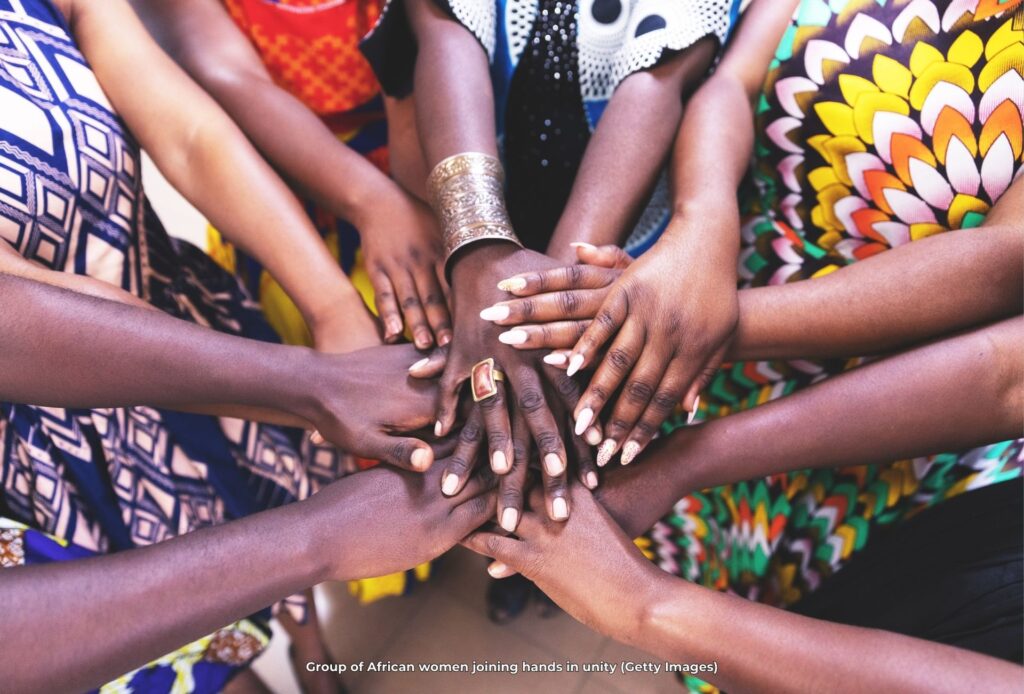Die na Njangi

Credit: ©Getty Images via Canva.com
| Giver: | Community, Individual |
|---|---|
| Receiver: | Individual or unstructured/informal group |
| Gift: | Items, Money, Time |
| Approach: | Reciprocal Gift |
| Issues: | 1. No Poverty, 10. Reduced Inequalities, 3. Good Health and Well-Being |
| Included in: | African Philanthropy Narratives |
Cameroonians are generally considered to be generous. They often show concern for one another and are supportive towards one another’s goals, in times of both joy and sorrow. They exhibit giving behaviours which are often described as ‘charity’ or ‘a show of love’, depending on context: when providing to the needy, or underprivileged, it is considered charity; however, when responding to a loved one’s happy or sorrowful moment, it is often considered to be a show of love. The latter often occurs when one is reciprocating a similar response from the past.
During pivotal events such as career promotions and weddings, people commit diverse resources to share in the celebration, such as time, money and material gifts. The same resources, and often more, are disbursed at the time of a death, encompassed in the saying ‘die na njangi’. This reflects a belief that since we shall all die someday, we need to show solidarity when someone in the community passes on, so that the same solidarity will, in return, be shown to us when needed.
“Die na njangi’ leverages a longstanding social help system in many Cameroonian communities – the njangi system. Members of a social group with a common goal and understanding pool together financial resources to support one another in turns and equal amounts over a specified period of time. This practice has, however, been extended to rally other resources beyond financial ones, with the goal of supporting one another. Some women apply the njangi approach over the farming season to cultivate large portions of land together and make higher farm yields over the farming season.
In die na njangi, individuals of the same community/social group – be it cultural or religious – rally their support to ‘send-off’ the departed. Upon hearing about the loss, people will visit the home of the deceased and spend time comforting the bereaved. In traditional settings, for example, women from the community will visit the deceased household’s compound daily while some will even live in the compound until after the burial. They will clean the compound and prepare food to entertain visitors. Often, some of the women will harvest mature crops like cassava, cocoyams, maize, plantains, beans, maize, etc., from their own farms to support the family of the deceased. They will cook food, serve guests, clean the dishes and find time to console the bereaved family.
Men visit the bereaved family and offer what they have; some men offer financial support, others help to slaughter any animals provided by the family of the deceased, and still others often offer some drinks – a cask of palm wine, wine or beer. They sit in circles and share stories among themselves. Often, the young men dig the grave.
If the deceased participated in similar events in the community, these actions will be understood to reciprocate the deceased's active participation. However, in the case where the deceased wasn’t an active participant in such events, the family will be required to provide a token ‘fine’, often in the form of some bottles of beer.
Often, in the evenings, all the visitors convene in a common arena, often the living room. They discuss together, share a common prayer (mostly done by Christians, especially if the deceased was a fervent Christian), and extend consoling words to the family.
In some social groupings (for example, ex-students associations, village cultural groups for men, women or youth, some religious groups, community groups), this practice is also codified in their bylaws. In such cases, giving is quantified and sometimes classified. For example, group members contribute a fixed amount of money each time a member dies or when a member loses a spouse, child, parent or sibling. If a member who is not active in paying all statutory dues dies or loses a loved one – often limited to a first degree relative - free-will contributions are made to support the bereaved member. However, if an active member who’s met all his/her statutory contributions dies or loses a loved one, a defined amount is contributed by all members of the association and handed to the bereaved. In some cases, especially if it is a spouse, members of the association spend nights in the compound of the bereaved in turns. This is done until burial, and sometimes a few days after burial. Such gestures after a death give room for members of the group to strengthen their bond and revive their sense of purpose. This solidarity is sometimes envied by onlookers. It demonstrates the level of solidarity, love and support within groups, which often serves as a factor that attracts onlookers to show interest in joining the group.
Whether in loose associations or formalised groupings, this generosity showered on the family of the bereaved depicts the high sense of solidarity entrenched in most Cameroonian communities, especially those from the grassfield regions of Cameroon, who are called the ‘graffi’ people. These include the West, Southwest and Northwest regions of Cameroon. This exemplification of love, care and support is inherent in the culture of the ‘graffi’ people of Cameroon and dates back to pre-colonial days. It is also reinforced by the importance of reciprocal support at times of loss.
Contributor: Jimm Chick Fomunjong
| Source type | Full citation | Link (DOI or URL) |
|---|---|---|
| Publication |
The Njangi: An African Financial Support System |
https://africanvibes.com/the-njangi-an-african-financial-support-system/ |